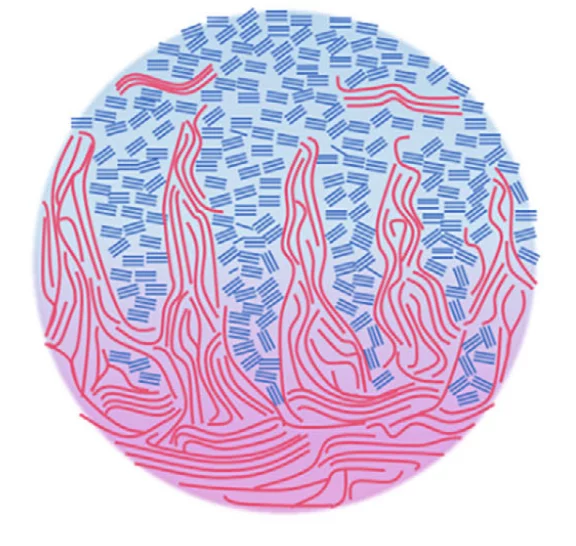Layer-by-layer (LBL) deposition has become a facile and promising method to fabricate highly efficient organic solar cells (OSCs). However, characterization and optimization of 3D morphology remain a grand challenge for LBL- processed active layers, and their correlation with photovoltaic properties of OSC devices is not clear to date. Here, to address this issue, the morphology and its formation mechanisms of LBL-processed active layer based on the classical D18/L8-BO blend were investigated systematically. Intriguingly, a unique 3D nanomorphology is achieved and uncovered within the LBL processed active layer, which highlights a highly uniform and “zigzag”-shaped phase structure formed by the intersection of donor and acceptor aggregates along horizontal direction in the middle-depth layer, rarely found in bulk heterojunction (BHJ) films processed by blend casting.
Our results revealed that solid additive DBM with a twisted conformation plays a crucial role in achieving the uniform phase structure of LBL-deposited active layer. Consequently, the characteristic 3D morphology of LBL-processed device significantly improves short-circuit current and fill factor, enabling an impressive PCE of 20.2% in such binary device. Therefore, this work unambiguously demonstrates a unique 3D nanomorphology within LBL active layer, unveils the morphology manipulation mechanism, and their correlation with optoelectronic properties of OSCs.
Facility: SINQ
Reference: H. Wang et al, Angewandte Chemie International Edition, e202508257 (2025)
Read full article: here


